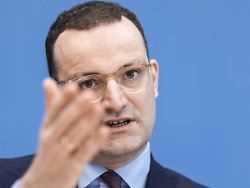Saturday, November 27th, 2021
Adapt to protective effect
Spahn for the shortened validity of the vaccination certificate
So far, digital vaccination certificates are valid for one year. But the effect of the vaccine wears off sooner. If the acting Federal Health Minister Jens Spahn has his way, the validity should therefore be shortened. And that as uniformly as possible across the EU.
According to Federal Minister of Health Jens Spahn, the validity of the digital corona vaccination certificate, which was previously set to one year, is to be shortened. Since the vaccination protection declines after a few months according to current scientific knowledge, a decision is now pending “that this digital vaccination certificate will be adapted to the actual protective effect”, said the CDU politician at a digital event of his ministry in Berlin.
The shortening will not take place “overnight,” said Spahn. “We’ll do it in such a way that everyone can get a booster to extend the certificate.” With regard to the shortening, he is striving for an EU-wide agreed regulation on the duration of the digital certificate.
The vaccination certificates issued so far, which can be saved and shown using a mobile phone app, are limited to twelve months. This period begins two weeks after the second vaccination. In the meantime, however, it has been shown that the vaccination protection wears off after about six months – therefore a booster vaccination is recommended at this time.
According to Lothar Wieler, head of the Robert Koch Institute, the current period of validity of the vaccination passport is currently being discussed. A regulation with transition periods is under discussion, said Wieler at the event with Spahn. The RKI boss agreed to communicate the new regulation in good time.
Ordered two billion doses of vaccine
In addition, Spahn considers the supply of corona vaccine to be secured even if the virus variant Omikron spreads in Europe. The EU has ordered a total of two billion vaccine doses for the next two years – this order quantity is also secured if the vaccine has to be changed to fight the Omikron variant, said Spahn. “We have production capacities in case the vaccine has to be adapted,” said the minister. “That’s enough to vaccinate Europe almost five times.”
The immunology professor Leif Erik Sander from the Berlin Charité was confident that the existing vaccines could be quickly adapted to the Omikron variant if necessary. “We are optimistic that we will not start from scratch with such a variant,” he said at the event. The human immune system is “structured in such a way that it builds up immunity against many parts of the virus” – so it can also be effective against mutations, said the doctor. Whether this is the case at Omikron is currently being researched “at full speed”.
Spahn appealed to citizens not to request a so-called booster vaccination two or three months after the second vaccination. Such inquiries are an increasing problem in already heavily used medical practices. Dirk Heinrich, Chairman of the Board of Directors of the Association of Specialists in Germany, confirms this trend. Booster vaccinations should be given six months after the second vaccination. Some federal states already offer them after five months.
